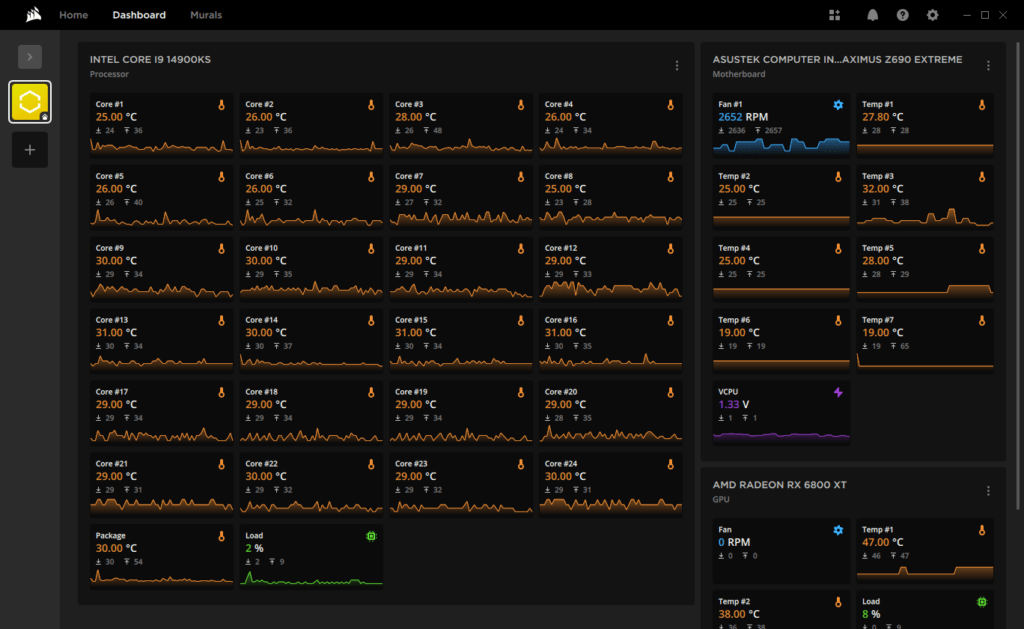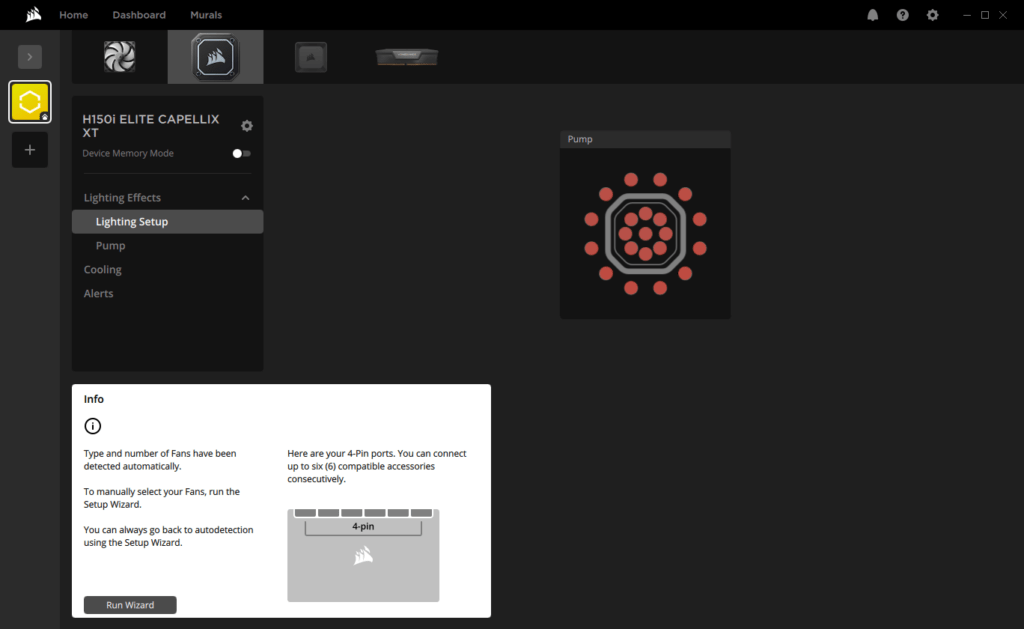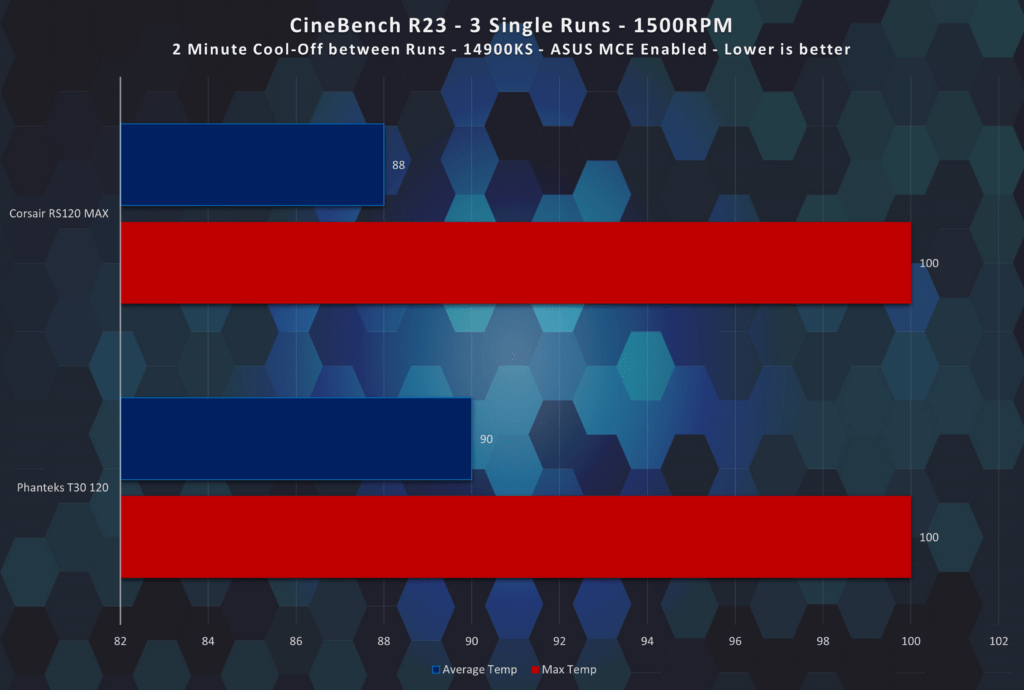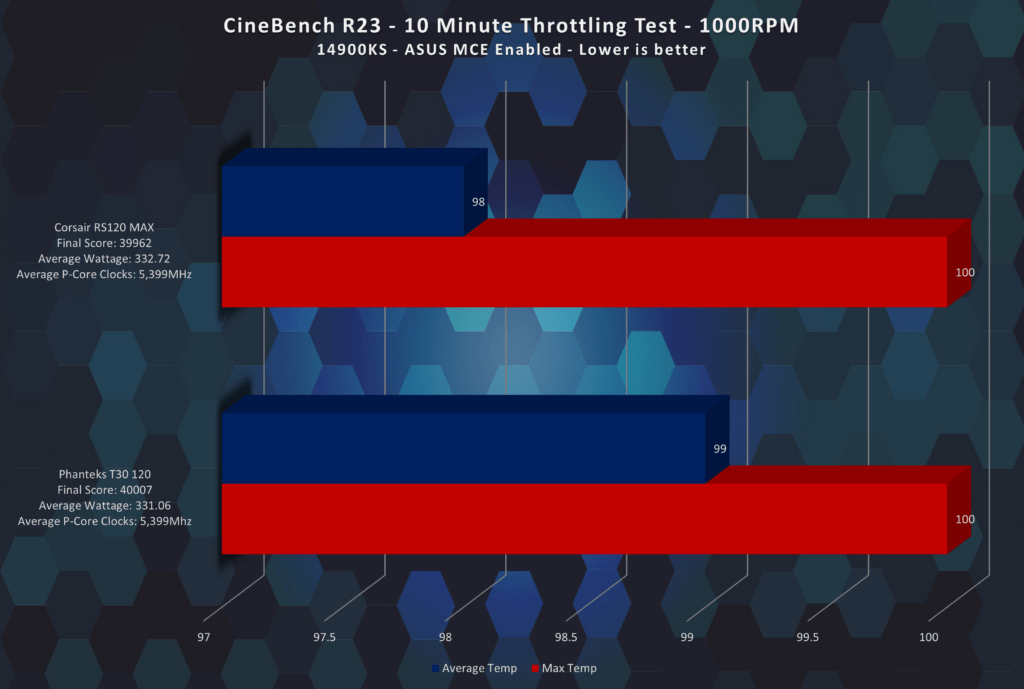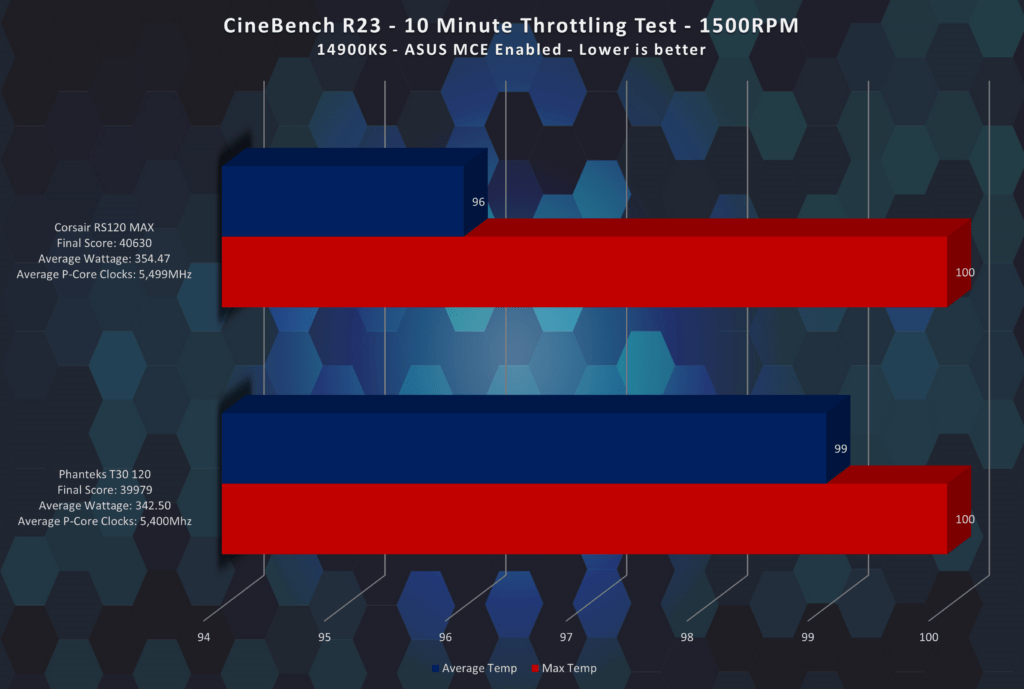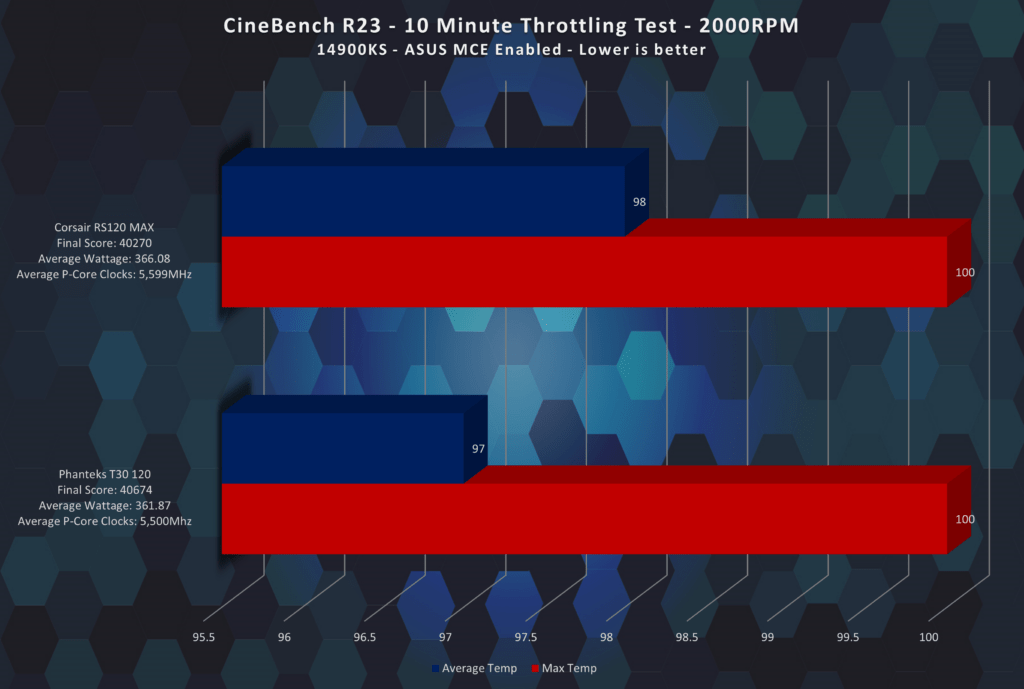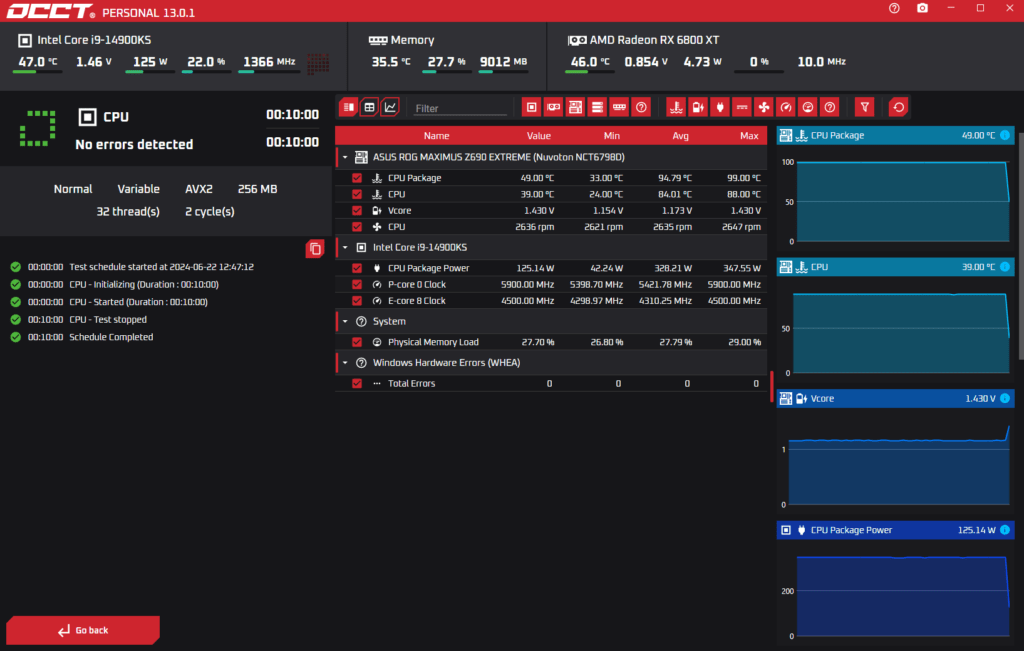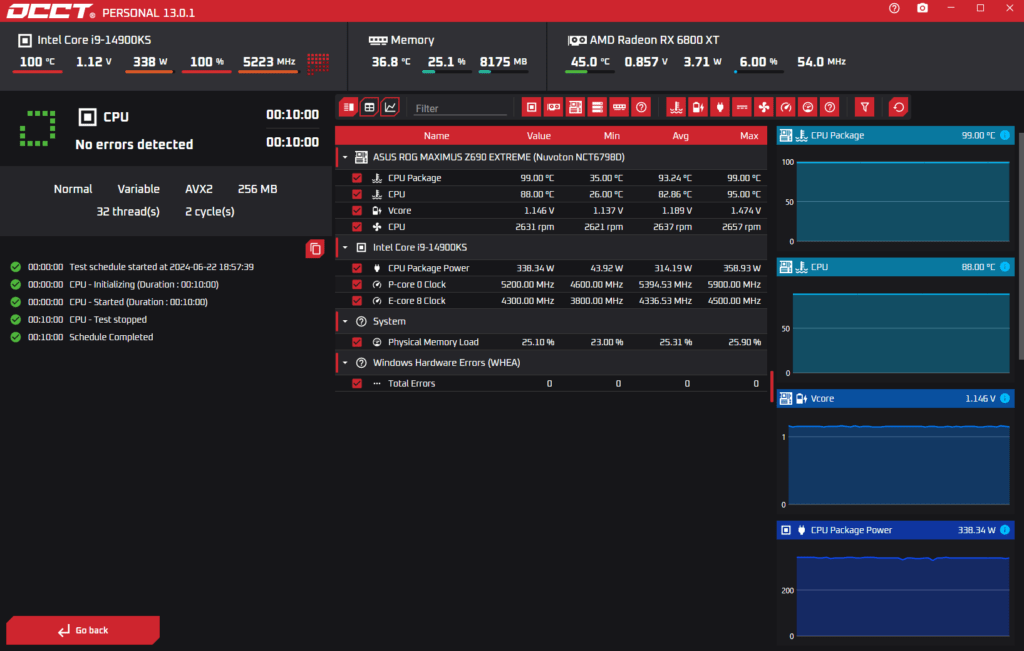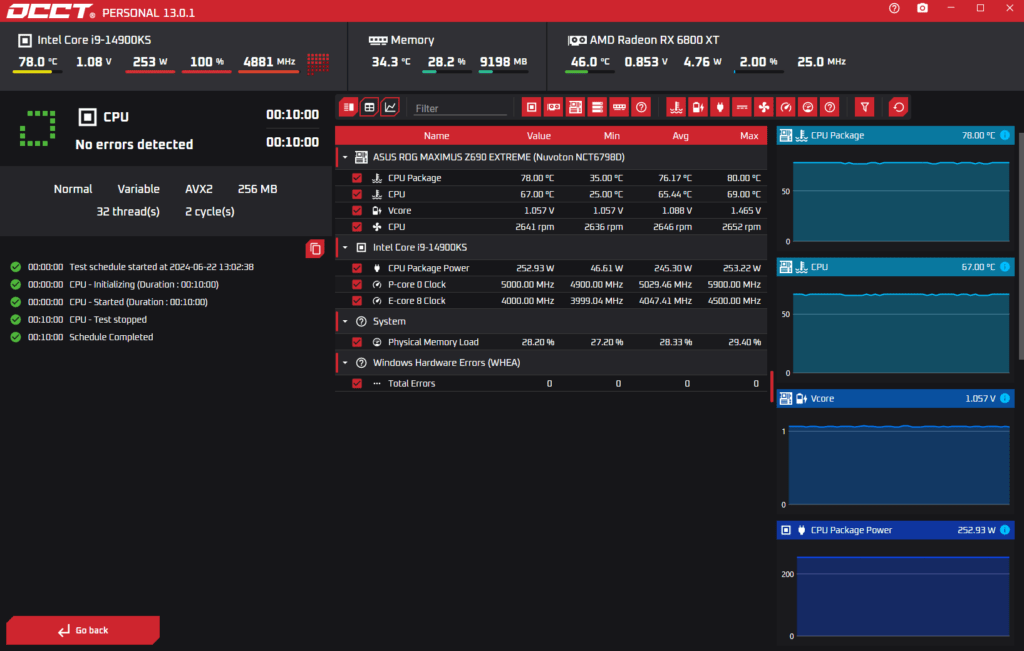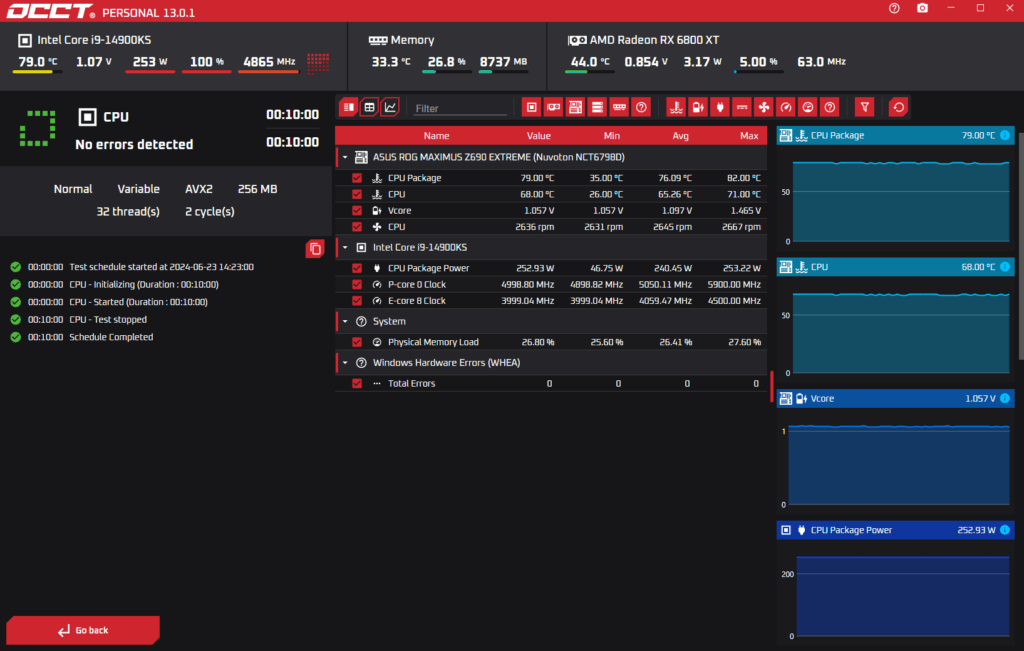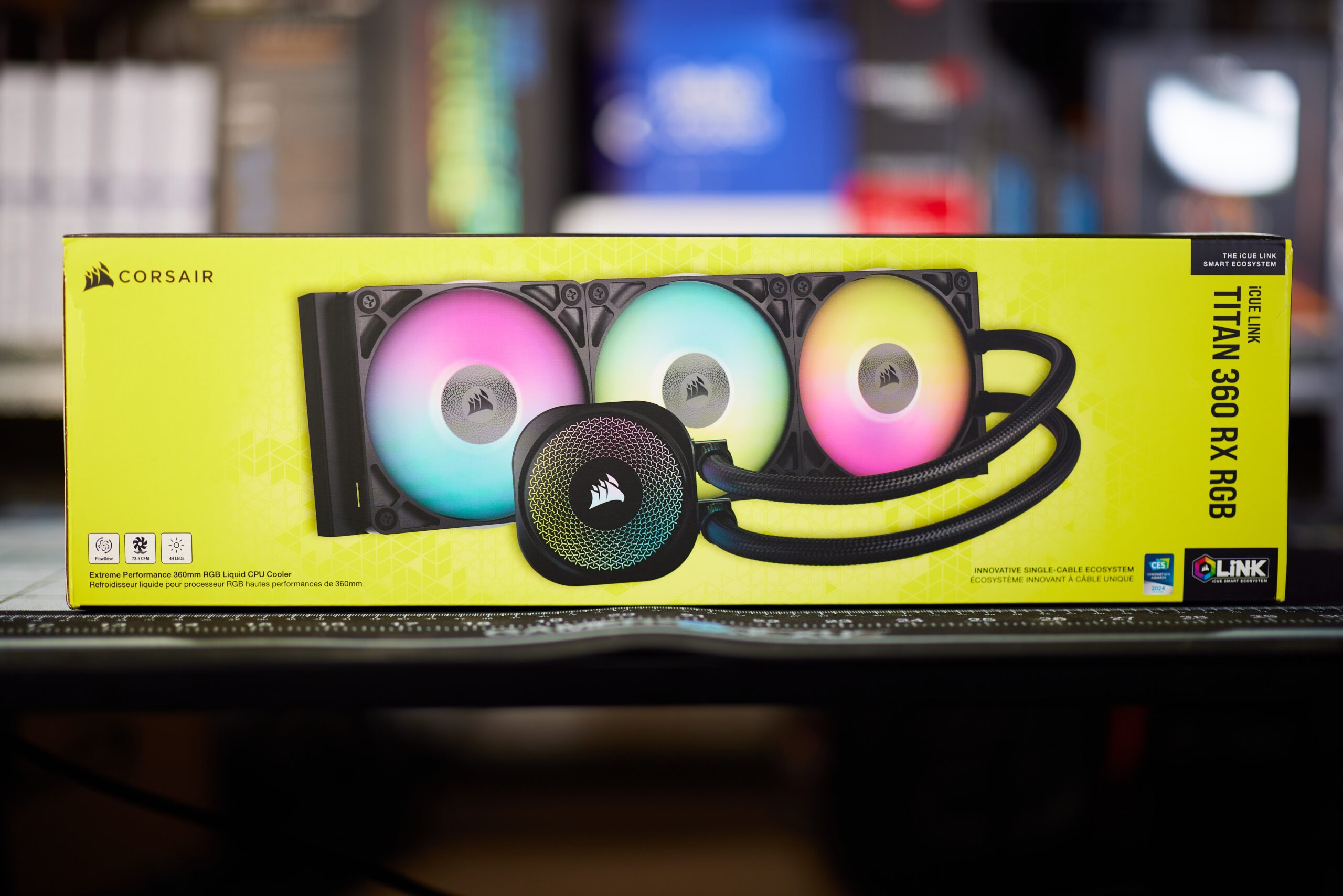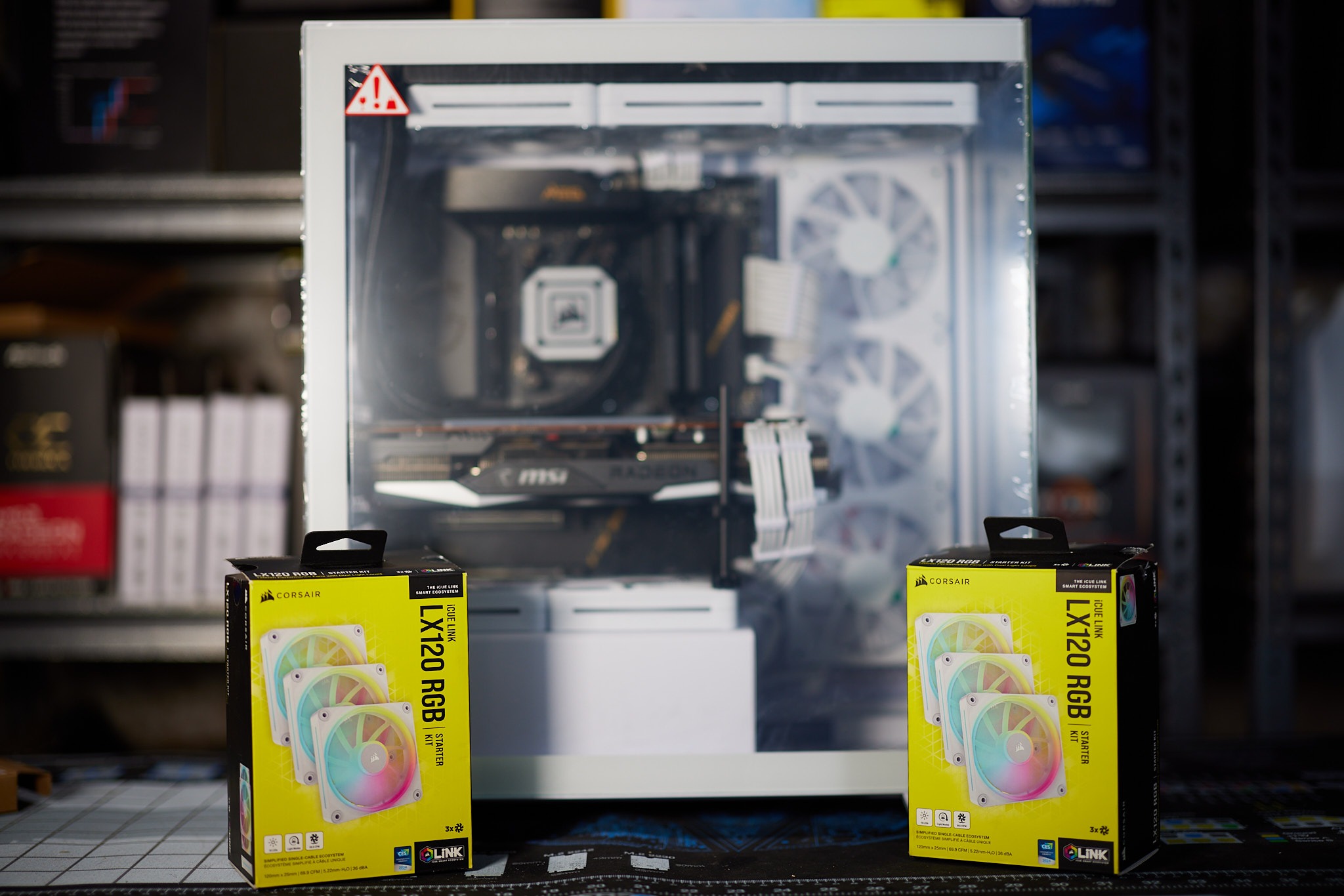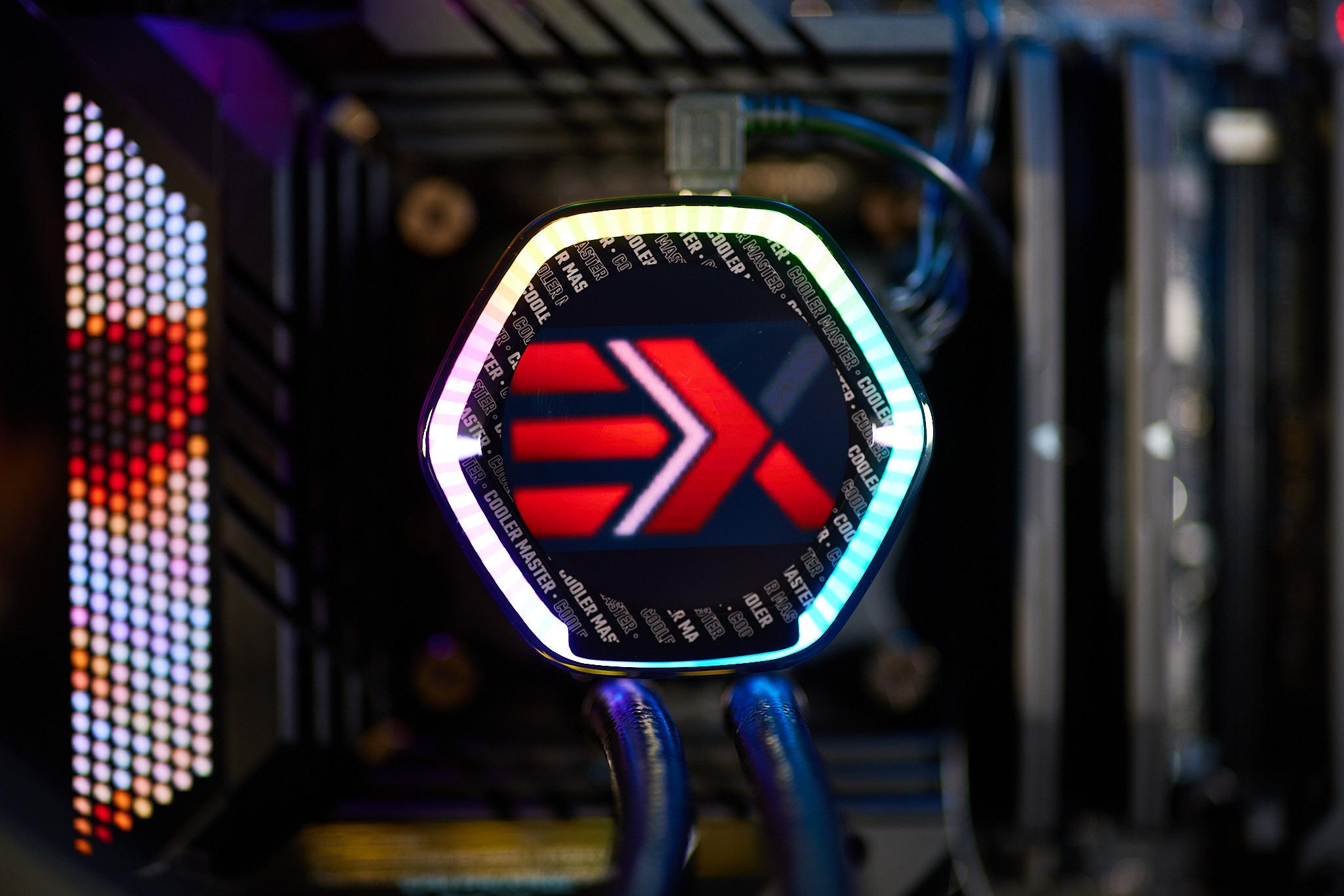The discussion around All-In-One (AIO) CPU coolers versus custom loops will always be ongoing. However, recently there has been a lot of innovation in the AIO market by manufacturers to try to match the performance and customizability of custom loops. Corsair, not to be outdone by its competitors, is launching its next-generation AIO CPU cooler, the iCUE LINK Titan RX RGB. The Titan combines Corsair's latest advancements in cooling engine technology, replaceable pump caps, and iCUE LINK RX120 fans in hopes of being your next CPU cooler.
In addition to the Titan AIO, Corsair supplied me with three of its CapSwap modules. This review will examine the iCUE LINK LCD Screen, VRM Fan, and Pump Cap Groove modules. Is the Titan good enough to topple another AIO I've recently reviewed, the Cooler Master 360 Ion? Continue reading to find out.
The humble computer case fan is often an afterthought for the novice computer builder. RGB functionality is the leading aspect they seek. The PC enthusiast understands cooling is the most important aspect of any computer build, especially regarding watercooling. Thanks to Corsair, I get to test what they claim is their highest-performing case fan yet. The Corsair RS120 MAX.
The Corsair RS MAX is a 30mm thick fan constructed of premium Liquid Crystal Polymer (LCP). If LCP technology sounds familiar, it is because some of the top case fan producers are using it, including one I purchased for comparison. The question to be answered by this review is whether the RS120 MAX is worth its price-performance premium. Let’s find out.
What Corsair Wants You to Know
Key Features
- 30mm Thickness: An increase of 5mm over standard fan thickness allows for a larger fan blade, improving cooling performance.
- PWM Controlled Speeds: 120mm: Powerful PWM-controlled fan speeds from 425 RPM up to 2,000 RPM, pushing up to 72 CFM of air with 4.2mm-H2O of static pressure. 140mm: Powerful PWM-controlled fan speeds from 400 RPM up to 1,600 RPM, pushing up to 104 CFM of air with 2.4mm-H2O of static pressure.
- Premium Liquid Crystal Polymer Construction: Incredibly strong and durable with excellent rigidity, reducing blade vibration and increasing performance.
- CORSAIR AirGuide Technology: Anti-vortex vanes direct airflow at your hottest components for concentrated cooling, whether used for intake, exhaust, or mounted to a radiator or heatsink.
- Quiet Operation with Magnetic Dome Bearing: CORSAIR’s Magnetic Dome bearing minimizes noise and reduces friction for greater longevity.
- Zero RPM Mode Support: Supports Zero RPM PWM signals to completely eliminate fan noise at low loads.
 |  |  |  |
 |  |  |  |
(click any of the above thumbnails to enlarge for viewing – click outside of image border to return to this page) |
|||
Tech Specifications
EHW Closer Look
Unboxing & Build Quality

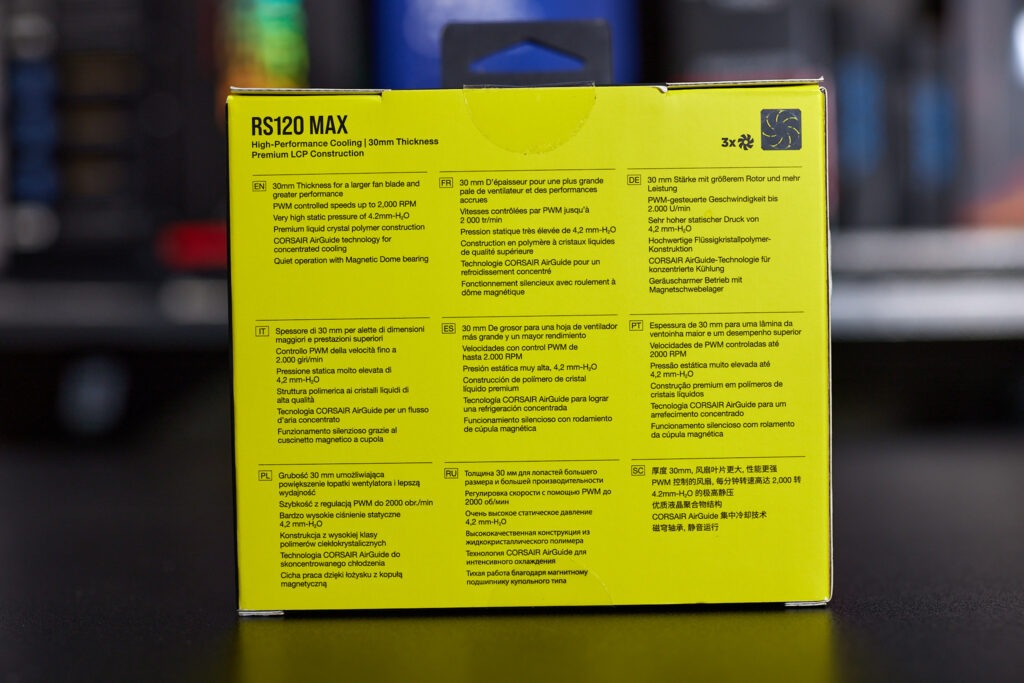



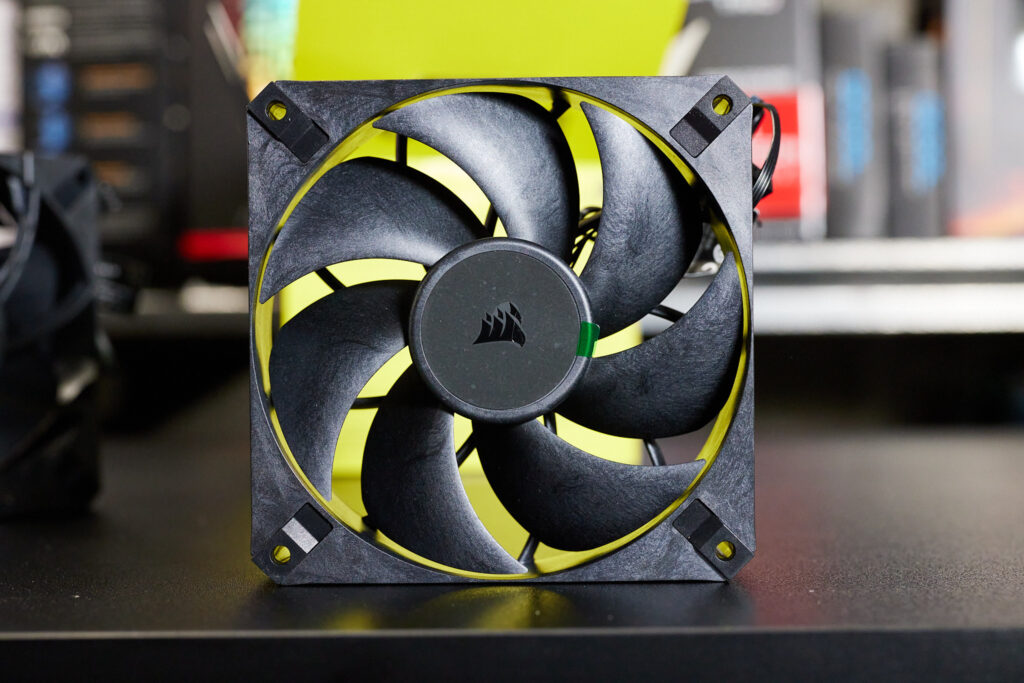

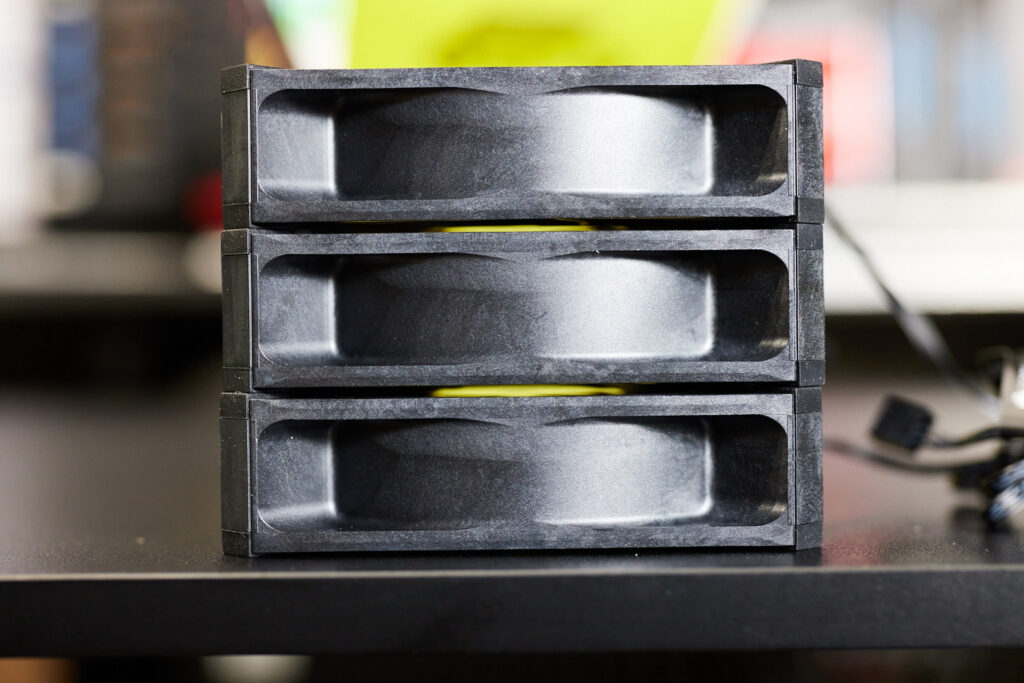

The Corsair RS120 MAX fans come boxed in Corsair’s well-known yellow and black hue packaging. There are three sleeves in the box, each containing an individual fan and screw set. Additionally, you get a Safety and Compliance Information and Warranty Guide booklet.
The Corsair RS120 MAX 3-pack fan set contains 12 QuikTurn, 12 Long Radiator and 12 Long Hydro X screws. The large assortment of screws will cover any installation type, including custom water loops and AIO’s.
While the LCP technology used in the development gives the fans a 3D-printed appearance, they feel premium – with a hefty weight. The RS120 MAX fans are traditional PWM 4-pin, which is nearly universally compatible with motherboard fan headers and external fan controllers.
Corsair iCUE Software
The CPU cooler I used for testing both sets of fans is the Corsair iCUE H150i ELITE CAPELLIX XT, provided for this review. While neither fan has RGB lighting, I did use iCUE to control the AIO’s pump and fan speed for the RS120 MAX. The iCUE software allows precise control of the fan’s RPM and the RGB for the pump head or any iCUE-compatible hardware.
If you do not want to install multiple PC monitoring applications, iCUE’s main Dashboard does provide readouts for temperature, voltage, and more at a glance.
Performance Testing
Base Test System Specs
Intel i9 14900KS
Asus ROG Maximus Z690 Extreme
Thermalright 1700 CPU Contact Frame
2x 16GB Corsair 5600MT
Corsair iCUE H150i ELITE CAPELLIX XT Liquid 360MM CPU Cooler
Open Air Test Bench
Testing Area Ambient Temp: 50F [10C] (Summer)
Fans Tested
Corsair RS120 MAX
Phanteks T30-120
Additional Testing Methodology & Notes
The Corsair RS120 MAX fans were controlled using an iCUE Commander Core, included with the iCUE H150i. The Phanteks T30-120 fans were attached to the motherboard’s fan headers and controlled by Fan Control. Each set of fans was tested on the H150i CPU cooler with the included paste – the CPU block was not repasted/remounted between the tests. The majority of the tests were performed with ASUS’s Multicore Enhancement – Remove All limits enabled, unless otherwise noted.
CineBench R23
3 Single Runs
The Corsair RS120 MAX and Phanteks T30-120 fans traded blows in this first CineBench R23 test. The RS120 MAX performed 1 to 2 degrees better in the 1000/1500RPM tests, but the T30 fans won in the 2000RPM test. With such little temperature delta between the two fans, it is a draw in my eyes.
10-Minute Throttling Tests
I provided more information in the graphs for the CineBench R23 10-Minute throttling tests. The 1000 and 2000 RPM tests were an exercise in a margin of error. A single degree separated the two fans. However, the 1500RPM test had the RS120 MAX win by 3 degrees.
OCCT 13.0.1
ASUS Multicore Enhancement – Remove All Limits
At 1500RPM, neither set of fans could keep the 14900KS from hitting 99C in a 10-minute OCCT 13 stress test. The T30 had a slight advantage, averaging a degree lower than the RS120 while ASUS’s Multicore Enhancement was enabled.
Intel 253W Standard Settings
The Intel 253W OCCT 13 test results show how evenly matched these fans are. The average temperature was virtually the same between the two fans. Although, the Corsair RS120 MAX never allowed the CPU temp to go over 80C.
3DMark Time Spy
Each fan was cool and quiet in the 3DMark Time Spy test at 1500RPM. Conversely, the RS120 MAX averaged 79C whereas the T30 averaged 84C.
Conclusion
The PC fan is an overlooked component. However, there is innovation in this market segment. With the introduction of Liquid Crystal Polymer technology, fans can run quieter with increased airflow. Subsequently, a requirement as PC components like GPUs and CPUs grow larger and hotter.
Corsair’s integration of LCP with their existing technologies showcases their expertise in PC fans. While the RS120 MAX fan isn’t a complete marvel of engineering by today’s standards, it does what it was designed to do. Very well. That is, push a lot of air, quietly.
The 1500 RPM test results between the RS120 MAX and T30-120 give the advantage to Corsair’s fans. On the other hand, the RS120 MAX is priced at a premium of $34.99 for a single fan and $94.99 for a triple pack. Does a small performance advantage warrant a price premium over the T30-120? Not really. However, the RS120 MAX should be considered if you are looking for one of the quietest, high-performance fans. In short, I would highly recommend the Corsair RS120 MAX with a price caveat.
| Pro's | Con's | |
|---|---|---|
| Cooling Performance | Expensive | |
| Quiet Operation | ||
| Matte Black Aesthetics | ||
| 4-Pin PWM Control | ||
| Five Year Warranty |

Want to discuss this product or give your views and feedback from your own usage? Leave your comments and discuss HERE, on the ExtremeHW Forums (No Sign Up Required)
Like our content? Please consider Donating to help us to continue our writing.









